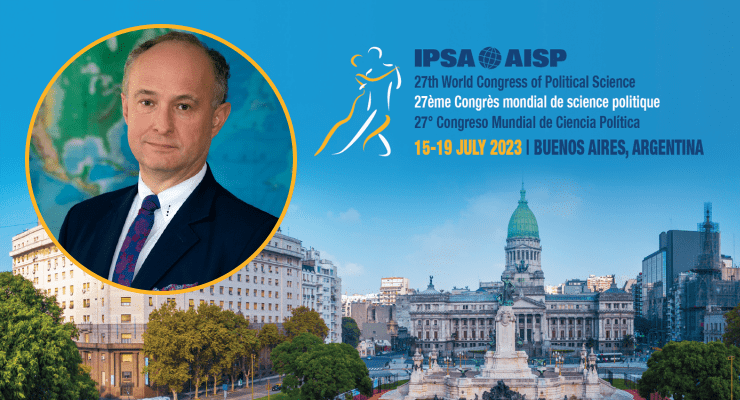Professor Wawrzyniec Konarski took part in the IPSA World Congress

More than 3,000 participants from around the world attended the World Congress of the International Political Science Association (IPSA) in Buenos Aires. One of the panels was attended by Professor Wawrzyniec Konarski, Rector of Vistula University, who presented the paper Lessons from the Modern History? Disadvantages of Polish Statehood during the Modern Era and Critical Remarks for Today.
The 27th World Congress of the International Political Science Association (IPSA) was held on July 15-19 in the capital of Argentina under the slogan “Politics in the Age of Transboundary Crises: Vulnerability and Resilience”. The Polish team consisted of over 40 political scientists.
Propfessor Wawrzyniec Konarski, PhD, Rector of Vistula University, took part in the panel Reform and Development of Citizen Education around the World. In his paper Lessons from the Modern History? Disadvantages of Polish Statehood during the Modern Era and Critical Remarks for Today he expressed the opinion that, the loss of the status of a sovereign state should not be associated, as it is most commonly done, with the period beginning with the Third Partition in 1795 and nominally lasting 123 years. The protracted process of losing the attributes of sovereignty began with the accession to the Polish throne of the Saxon Wettin dynasty whose rule initiated a steady weakening of the Polish-Lithuanian Commonwealth, leading to its ultimate collapse at the end of the 18th century. Some of the flaws inherited from the Polish state of those times came back to the fore when Poland regained its independence after WWI and continue to affect our country to this day.
The International Political Science Association (IPSA) is an international non-profit scientific organization founded in 1949 under the auspices of UNESCO. Its aim is to support the development of political science. The IPSA World Congress takes place once every two years. Representatives of the Polish Society of Political Sciences have been active and visible in the organization’s authorities and research committees for many years.